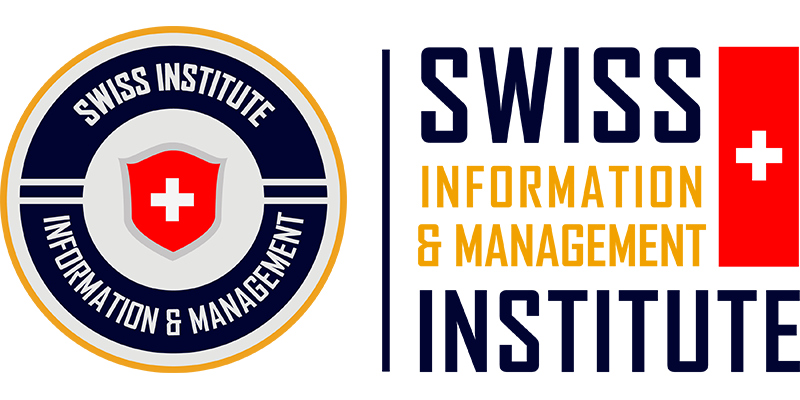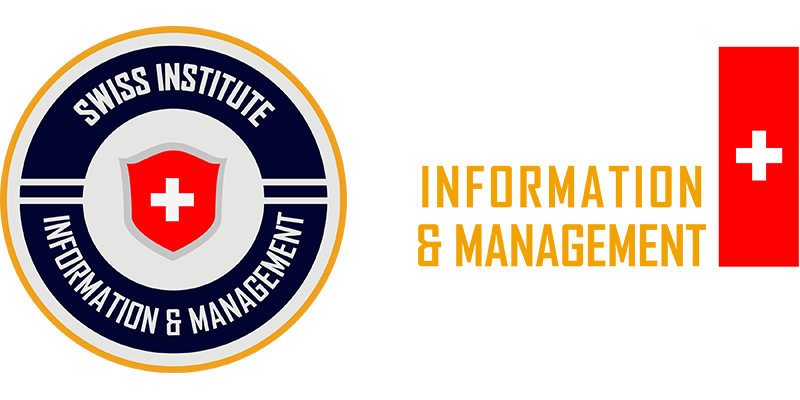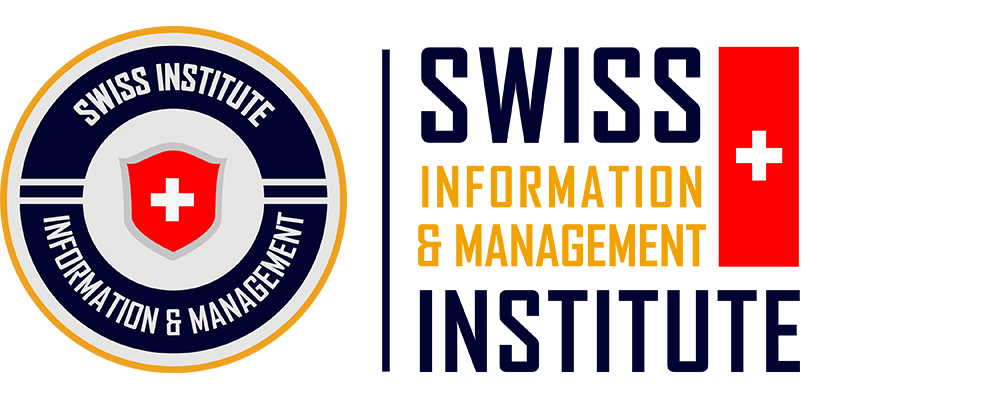Bachelor of Science (Hons) Information Technology
Asia Campus Mode
The Bachelor of Science (Hons) in Information Technology program at MUST is delivered in an Online-Distance Learning mode and is implemented and managed by SIMI Swiss. This program offers in-depth training in the field of Information Technology, designed to align with the latest technology trends while emphasizing the practical application of IT in business and industry.
“The program is implemented through learning online, combine with study abroad at MUST in Malaysia. Designed for working professionals, SIMI provides an academic support system to ensure students are well-prepared for success.”
Along with globally recognized qualification, the SIMI Swiss Master program understands what students need:
- Fully Accredited & Recognized
- Multiple Qualifications from SIMI & Prestigious Universities
- Flexible Learning Model
- Academic Support While Studying
- Stay current with the latest trends through Colloquium abroad
- Tuition fee support provided by Swiss EduFund
Dual Qualifications within a Master Program:
- Bachelor of Science in Information Technology Project Management from Swiss Information and Management Institute.
- Bachelor of Science (Hons) Information Technology from Malaysia University of Science and Technology.
Fully Accredited & Recognized
Malaysia University of Science and Technology is recognized by the Ministry of Higher Education (DU008(B)), and the program is nationally accredited by the Malaysian Qualifications Agency (MQA/PA14284).
Online Learning & Study Abroad
This program combines online learning with study abroad at the Malaysia campus, offering students flexible education alongside valuable international experience.
Financial Aid by Swiss EduFund
EduFund tailors financial aid packages based on the applicant’s talent, awards, English proficiency, and entry requirements.
Academic Support Systems
The academic, research and language support system helps students overcome challenges so they can focus solely on excelling in their studies.
Courses & Learning Outcomes
Year 1
1. Information Systems (BIT1084)
Overview
- Explores the role of information systems in modern enterprises, including hardware, software, data, people, and processes.
- Analyzes how information systems support operations, decision-making, and business strategies.
Unit Aims
- Understand the structure and functions of information systems within an organization.
- Evaluate the role of information systems in optimizing performance and business management.
- Apply information system knowledge to real-world business scenarios.
2. Principles of Programming (BIT1014)
Overview
- Introduces basic programming concepts including conditional statements, loops, functions, and error handling.
- Uses a common programming language to guide learners in building simple and logically structured programs.
Unit Aims
- Understand fundamental programming principles and source code organization.
- Write and test basic programs using standard syntax.
- Develop programming logic and problem-solving skills through coding.
3. Database Systems (BIT1024)
Overview
- Introduces database management systems (DBMS), data models, SQL, and relational database design.
- Focuses on how to efficiently and securely store, retrieve, and manage data.
Unit Aims
- Design and build databases using the relational model.
- Perform data queries using SQL.
- Apply data management principles in real-world information systems.
4. Computer Networking (BIT2014)
Overview
- Introduces networking concepts and techniques, including network architecture, IP addressing, routing, and basic network security.
- Focuses on the OSI model, data transmission, and current networking technologies.
Unit Aims
- Understand the structure and functions of computer networks.
- Configure and troubleshoot basic networking devices.
- Apply knowledge to design and maintain small enterprise networks.
5. Computer Architecture and Organization (BTE2054)
Overview
- Introduces the internal structure and organization of computers, including components such as the CPU, memory, buses, and input/output devices.
- Focuses on hardware operation principles, data flow, instruction cycles, and microprocessor concepts.
Unit Aims
- Understand the relationship between hardware and software in data processing.
- Analyze processor architecture, memory systems, and other key computer components.
- Apply knowledge to optimize programs and enhance system performance.
6. Computer Networking (BTE1104)
Overview
- Introduces concepts and techniques in computer networking such as OSI model, TCP/IP, routing, and IP addressing.
- Focuses on network structures, basic networking devices, and foundational network security.
Unit Aims
- Understand the architecture and operations of computer networks.
- Practice configuring and troubleshooting basic networking devices.
- Apply knowledge to build and maintain small network systems.
7. Cybersecurity (BIT2114)
Overview
- Explores fundamental cybersecurity concepts such as encryption, authentication, access control, and network attacks.
- Analyzes threats and methods to protect systems and data effectively.
Unit Aims
- Understand principles of information security and digital risks.
- Apply security tools to prevent and respond to network incidents.
- Promote ethical awareness and responsibility in implementing security solutions.
8. Calculus and Algebra (UUM1014)
Overview
- Provides foundational knowledge of differentiation, integration, functions, equations, and linear algebra.
- Supports analytical thinking and problem-solving in information technology contexts.
Unit Aims
- Understand and apply calculus and algebra concepts to technical problems.
- Develop logical reasoning and mathematical analysis skills.
- Build a strong mathematical foundation for advanced computer science subjects.
9. Data Structures and Algorithms (BIT2024)
Overview
- Introduces key data structures such as arrays, linked lists, stacks, queues, trees, and graphs.
- Analyzes and implements algorithms for searching, sorting, recursion, and optimization.
Unit Aims
- Understand the structure and function of different data structures.
- Apply efficient algorithms to solve practical problems.
- Evaluate algorithm complexity and improve program performance.
10. Artificial Intelligence and Business Analytics (BTE1034)
Overview
- Introduces core concepts of artificial intelligence and data analytics in business contexts.
- Explores AI applications in forecasting, decision-making, and business process optimization.
Unit Aims
- Understand the role of AI and data analytics in business strategy.
- Apply basic machine learning techniques to extract insights from data.
- Develop analytical thinking for problem-solving using AI technologies.
Year 2
1. Object Oriented Analysis & Design (BIT2034)
Overview
- Introduces object-oriented methods for software analysis and design using UML and design patterns.
- Focuses on modeling, system design, and developing reusable software components.
Unit Aims
- Understand object-oriented principles in system analysis and design.
- Apply UML to model software architecture and behavior.
- Design flexible, maintainable, and scalable systems.
2. Advanced Programming (BIT1034)
Overview
- Enhances programming skills through topics such as multithreading, exception handling, network programming, and file manipulation.
- Develops complex applications using modern programming techniques.
Unit Aims
- Efficiently solve advanced programming problems.
- Understand and apply concepts such as sockets, threads, and events.
- Develop high-performance and scalable software solutions.
3. Applied Statistics (BIT3154)
Overview
- Introduces applied statistical concepts such as data description, hypothesis testing, regression, and ANOVA.
- Focuses on the use of statistics in data science and business analytics.
Unit Aims
- Apply statistical techniques to process and interpret data.
- Use statistical tools to support decision-making.
- Visualize and analyze data effectively.
4. Web Technologies (BIT2044)
Overview
- Introduces web development technologies such as HTML, CSS, JavaScript, and server-side programming.
- Focuses on building responsive web applications with database integration.
Unit Aims
- Develop dynamic websites using frontend and backend technologies.
- Understand client-server models and HTTP protocol.
- Design user-friendly and interactive web experiences.
5. Software Engineering (BIT3024)
Overview
- Covers the full software development life cycle from requirements analysis to deployment and maintenance.
- Explores development methodologies such as Waterfall, Agile, and DevOps.
Unit Aims
- Understand the software development life cycle and its phases.
- Apply development methodologies in real-world projects.
- Enhance project management and teamwork skills in software development.
6. Operating Systems (BIT2054)
Overview
- Explores fundamental operating system concepts such as process management, memory, file systems, and device coordination.
- Analyzes how operating systems manage hardware and software interactions.
Unit Aims
- Understand the roles and functions of an operating system.
- Analyze and optimize system resources and performance.
- Practice configuring and customizing operating environments.
7. Human Computer Interaction (BIT2114)
Overview
- Explores the relationship between users and systems, focusing on UI/UX design.
- Analyzes user behavior and applies design principles for intuitive interfaces.
Unit Aims
- Understand user needs and behavior in system interaction.
- Design intuitive and effective user interfaces.
- Apply UX/UI principles in developing user-centered technology products.
8. System Analysis and Design (BIT3134)
Overview
- Introduces the process of information system analysis and designing solutions based on business requirements.
- Explores modeling tools and techniques such as data flow diagrams (DFD) and functional specifications.
Unit Aims
- Identify and analyze system requirements logically and systematically.
- Design information systems to meet business needs.
- Apply modeling techniques to support development and communication in software projects.
Year 3
1. Data Science (BIT3054)
Overview
- Introduces the data science process from data collection, cleaning, and analysis to visualization.
- Utilizes tools such as Python, R, and SQL to explore and analyze large datasets.
Unit Aims
- Apply statistical and machine learning techniques to extract insights from data.
- Analyze and visualize data to support decision-making.
- Develop data-driven thinking for practical applications in business.
2. IoT Concepts & Applications (BIT3234)
Overview
- Introduces the Internet of Things (IoT), sensor devices, connectivity, and data processing platforms.
- Explores real-world applications of IoT in industry, smart homes, and healthcare.
Unit Aims
- Understand the architecture, protocols, and core technologies of IoT systems.
- Design and develop basic IoT applications.
- Evaluate the security, performance, and feasibility of IoT solutions.
3. Project Management (BIT3025)
Overview
- Introduces essential knowledge in project management within an IT environment.
- Focuses on planning, organizing, monitoring, and controlling project timelines, budgets, and resources.
Unit Aims
- Understand the phases of the project management life cycle.
- Apply tools and techniques to manage projects effectively.
- Develop leadership, communication, and risk management skills in project settings.
4. Placement Training (BIT4006)
Overview
- Equips students with professional skills such as CV writing, interviewing, professional communication, and teamwork.
- Enhances job readiness through internships or realistic business simulations.
Unit Aims
- Develop soft skills and practical job-seeking strategies.
- Prepare a professional resume and perform confidently in job interviews.
- Improve adaptability and effectiveness in real-world work environments.
Undergraduate Project Stage
Undergraduate Project (BIT4008)
Overview
- This is a project designed to integrate and apply all the knowledge and skills acquired throughout the undergraduate program.
- Students select a topic, develop solutions, build a product, and present a research report under faculty supervision.
Unit Aims
- Apply theoretical knowledge and practical skills to solve real-world problems.
- Develop critical thinking, research capabilities, and independent problem-solving skills.
- Complete a product or research project that demonstrates the student's professional competence before graduation.
Entry requirements & Learning methods
1. Entry Requirements
In addition to the entry requirements, candidates applying to the program are also assessed for their suitability by the admissions committee before joining the program to ensure that they can acquire and benefit from the program.
Entry requirements:
To enroll this program, learners must possess one of the criteria below:
- A Bachelor's degree in a field related to Computer Science, Software Engineering, Information Technology, Information Systems, or an equivalent qualification with a minimum cumulative GPA (CGPA) of 2.5; or
- A Level 3 qualification in a relevant field under the EQF framework or its equivalent.
English requirements:
If a learner is not from a predominantly English-speaking country, proof of English language proficiency must be provided.
- Common European Framework of Reference (CEFR) level B2 or equivalent;
- Or A minimum TOEFL score of 101 or IELTS 6.0; Reading and Writing must be at 6.0 or equivalent;
- Or Pearson Test of English Academic (PTE Academic) 51.
Please note:
- In case of not having an English proficiency certificate, the candidate can provide it within 6 months.
- SIMI and MUST reserve the right to make admissions decisions based on the requirements of recognized agencies and the global quotas of the program.
2. Learning methods
The program has a duration of 3 years.
- Students study with MUST through live classes, combined with study at the Malaysia campus.
- A full-time student visa is available for those who wish to stay in Malaysia for study and work as expats.
- Additional academic and research support is provided through the BLMS system.
3. Academic Support
We understand that pursuing an accredited postgraduate program can be both exciting and challenging, especially for busy adult learners. To help you overcome these challenges, we’ve created the SIMI Swiss Supporting Systems, designed to guide you through any difficulties during your studies.
For a full overview of the support available, be sure to watch our informative videos, offering help at every stage of your academic journey.
Program accreditations
1. Accreditation review guidelines by SIMI Swiss
SIMI is the first higher education institute in Zug, Switzerland, to achieve comprehensive international accreditations at both the organizational and program levels. The video below guides you through the step-by-step process of verifying and checking SIMI Swiss's accreditations and recognitions.
2. Refer to SIMI Swiss Program information in SVEB Switzerland
SVEB Switzerland (Schweizerischer Verband für Weiterbildung) is the Swiss Federation for Adult Learning and serves as the national umbrella organization for adult education in Switzerland. SVEB is recognized as the leading authority in Switzerland for promoting and supporting lifelong learning and professional development through a wide range of educational programs and certifications.
Benefits of the SIMI Programs Published in SVEB:
- Officially on the Swiss federal portal: Being published in SVEB gives the SIMI Swiss program official publication in Switzerland, validating its quality and adherence to Swiss educational standards.
- Increased Credibility: Membership and listing with SVEB enhance the credibility of the SIMI Swiss program, making it more attractive to prospective students and employers who value SVEB-approved programs.
- Professional Advancement: Programs listed with SVEB are often aligned with the needs of the Swiss job market, increasing graduates' employability and supporting their career progression within Switzerland.
- Access to a Wider Network: Association with SVEB connects the SIMI Swiss program to a broader network of educational institutions, professionals, and employers across Switzerland, offering opportunities for collaboration, networking, and knowledge exchange.
- Compliance with Swiss Standards: SVEB ensures that SIMI Swiss programs meet high educational standards, including up-to-date content, qualified instructors, and effective teaching methods, enhancing the overall learning experience for students.
- Support for Lifelong Learning: SVEB’s focus on adult education means the SIMI program aligns with lifelong learning principles, supporting students in their ongoing professional development.
Check the SIMI Swiss programs on SVEB HERE.
3. Accreditation of Malaysia University of Science and Technology
The Malaysia University of Science and Technology (MUST) is a university established with the support of the world’s top-ranked university, Massachusetts Institute of Technology (MIT) USA, through a governmental agreement and cooperation. It has achieved the following accreditations:
- Accredited by the Accreditation Service for International Schools, Colleges and Universities (ASIC) at the highest level (Premier Institution);
- Recognition by Malaysia’s national examination body – MQA. See more HERE.
- The Bachelor of Science (Hons) Information Technology program is recognized by Malaysia’s national examination body – MQA. See more HERE.
- Attainment of the highest standards (5 stars) according to QS Ranking for teaching quality and graduate employability;
- Recognition by the Chartered Manager Institute (CMI) United Kingdom;
- Membership recognition by EFMD;
- Recognition by ISCEA (International Supply Chain Education Alliance), the world’s first organization acknowledging experts in Logistics and Supply Chain Management.
4. Program accredited by ISCEA Switzerland
The program is accredited by ISCEA (International Supply Chain Education Alliance) Switzerland (See more HERE) and graduates have enough knowledge to take the exam to receive the Certified Sustainable Supply Chain Professional (CSSCP) certificate from ISCEA (See more HERE)
About ISCEA Certified Sustainable Supply Chain Professional (CSSCP):
- The first and most advanced professional certification in supply chain management.
- ISCEA Certified Sustainable Supply Chain Professional (CSSCP) is implemented by many leading universities (See more about the ISCEA CSSCP program implemented by the University of Cambridge HERE)
- Refer to the tuition fee of the ISCEA CSSCP program HERE.
About ISCEA Switzerland:
- ISCEA Switzerland is owned by SIMI Swiss in cooperation with ISCEA USA.
You will get
Online-Distance Learning
Fully Accredited & Recognized
Swiss EduFund
Academic Support
All Master' Programs (Asia Campus)
Fully Accredited
Multi Recognition
Master of Science in Transportation and Logistics
Powered by LSCM Institute of Switzerland
Master of Science in Information Technology (By Research)
Powered by Swiss IT Institute
Master of Science in Information Technology (By Coursework)
Powered by Swiss IT Institute


